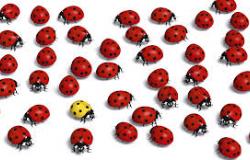6 Ways to Rethink Aid for Real, Complex Human Beings

Duncan Green with some ideas for a more realistic, human-centred, foreign aid agenda.
Last week I went along to the annual conference of DFID’s Social Development Advisers (SDAs – DFID has lots of acronyms). As well as giving them an initial picture of what the ‘Action for Empowerment and Accountability’ research programme is finding out about DFID’s adaptive management programmes, they asked me for a pre-dinner rant about what they should be thinking about in the longer term.
DFID is the only bilateral aid agency with recognized SDAs, so I started from there – what would it take to make the ‘social’ and in particular ‘the human’ truly central to development discourse and practice? Because I fear that it is currently at risk of becoming rather inhuman. By that I mean that its structures and language seem not just far removed from lived realities, but often oblivious to them.
6 examples:
The inner lives of real people: the sector has an emaciated view of the human condition. Compare the best we can come up with about what goes in inside people’s heads and hearts – broad generalizations like ‘rights’, ‘agency’, ‘power within’ – with the kind of depth and insights achieved by psychologists, psychotherapists or novelists. How do we recognize and work with (let alone measure) issues like love, shame, fear, solidarity? Those emotions are often what actually drive or inhibit people from bringing about the change we seek, yet are largely missing from our radar.
Leadership: Marxists downplay it (they prefer amorphous masses rising in protest). Orthodox economics prefers to talk in terms of individuals maximising their utility. But anyone working on social or political change knows that leadership at all levels (the grassroots, not just the celebs) is vital. How do we create an enabling environment for progressive leaders, both now and future generations? How do we support leadership among women, indigenous groups or others traditionally excluded from power? Should we go back to backing individuals (scholarships, stipends, mentoring) rather than always insisting they come up with project proposals before we can hand over any cash?
Siloes v Real Lives: Sitting in a refugee camp or a shanty town, the aid sectors siloes of humanitarian, long term development, advocacy, or sectoral approaches (‘sorry, I do education, not water’) are nothing short of bizarre. Starting with real lives and loves might be one way to break down the walls.
Process: The processes, both in deed and thought, of the aid agencies often work against a people-centred approach. Fly in/fly out consultants and researchers (including me); a control-freak desire to ‘solve the principal-agent problem’ so that we can get those pesky poor people and their governments to do what we want. Ways to overturn that include immersions, handing over the stick, and maybe canonizing Robert Chambers and his lifelong effort to get us to rethink what constitutes knowledge and wisdom.
Reframing development for a post-aid world: See this recent post. The aid sector seems in thrall to the exotic and the Other – we want to work on problems and issues that barely exist in its home countries. Malaria, extreme hunger and poverty, farmers (remember them? A friend of mine once returned to Wales after years in Nicaragua and asked a startled mate who picked him at Heathrow ‘so how’s the harvest this year’ – priceless). A people centred approach might help us shift to working on shared rather than ‘othered’ issues, like inequality, road traffic or the tobacco trade that kills 15 times more people than malaria.
From deficits to assets: people-centred thinking would naturally start with what they have, not what they lack. Positive deviance, asset-based community development, appreciative enquiry. Bring it on.
I’m not holding my breath. DFID, like most agencies, often seems in thrall to other ways of thinking and working: measurement (counting what can be counted, not necessarily what counts), neoclassical economics, unsustainable models of growth. But we can always dream – we (including the beleaguered SDAs) shouldn’t settle for less and ensuring the work of aid and development agencies acts as if human beings really exist, in all their wonderful depth and variety.
This post first appeared on:


